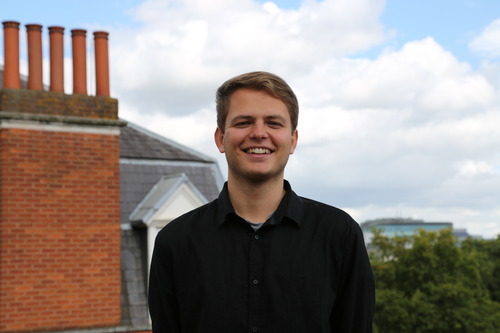
Community and Welfare Officer and Alumnus Seb Bruhn attended We are All Human at the LSE Faith Centre, and records his impressions in this post. He concludes that if we can be more open to sincerely respecting and trying to relate to the struggles of people from other backgrounds, then we will perhaps get both a more truthful and holistic understanding of the global situation.
A couple of weeks ago I was fortunate enough to attend ‘We are all human: Interfaith Perspectives on Troubled Times’. It was a fascinating panel event hosted by the LSE Faith Centre, with speakers Mustafa Field from the Faiths Forum for London and Sister Christine Frost, both renowned for their work on community cohesion. This event and its message, which was largely a response to recent incidents, resonated deeply with me, compelling me to write this blog that you are now reading. Its encouragement of organic interfaith dialogue and inclusion of anecdotes helped to remind me of the acute importance of mutual understanding and maintaining hope in these volatile and ever changing times.
As the talks and discussion developed, it seemed clear how important a forum like this had been for many of the attendees. Many, including myself, were clearly relieved to get things off of their chest in relation to the conflicts and traumas that had taken place over summer, many of which had thrust religion into the limelight. It is important to remember how diverse our student community is and that many of our fellow students and staff members come from unstable regions where conflicts are converging. These include places such as India, Palestine, Central African Republic, Syria, and Ukraine. With such a diverse community, that has links to so many regions, it seems crucial that we, as our Chaplain said, “can make LSE a place that exports peace”.

The stories and insights of the two panellists helped lay out the global situation and also put into context the message of the event and the Faith Centre as a whole. Sister Christine Frost spoke of the charity work and community building that she had been a part of in her predominantly Muslim neighbourhood of London. She also highlighted the importance of communication, when she gave an account of the media’s misrepresentation of her removal of a politically charged flag from her estate’s main entrance, which she feared would cause the wider society to wrongly fear her neighbours. The incident caused her to strengthen her community activism, which has involved her speaking out about the severe inequality and persisting disillusionment of the youth in many of London’s boroughs.
Mustafa Field spoke about his work with the faith forum and the positive impact that bringing together the regional leadership in and around London has had on social cohesion. He highlighted the numerous similarities in the nature and challenges of the various religious communities and how religious communities have far more that can bring them together than can divide them. His organisation’s work has included English classes, culturally diverse meals, housing projects, and promotion of political involvement. Mustafa emphasised that the success of the different initiatives often came down to the willingness of each faith group to take the time to sincerely listen to the others.
So how can we ensure that the LSE community is one that truly exports peace? In my humble opinion, the answer seems to have something to do with being honest with ourselves. As was alluded to during the event, it is normal and natural to focus one’s thoughts and efforts mostly on the struggles of one’s own community. However, if we can be more open to sincerely respecting and trying to relate to the struggles of people from other backgrounds, then we will perhaps get both a more truthful and holistic understanding of the global situation. This, though, requires an understanding that the labeling of an entire community is an easy oversimplification and that every person is a unique individual with many aspects to their identity. This also involves being honest about the individual role that each of us inevitably plays in the creation and sustaining of a culture of peace and understanding. So have a chat with someone you wouldn’t normally, get involved with the initiatives of the Faith Centre and the SU, like the upcoming Interfaith Week. We have a unique and remarkable opportunity here!


